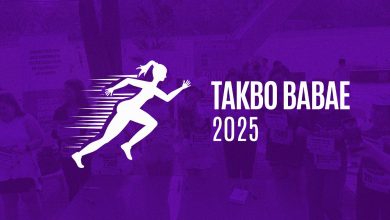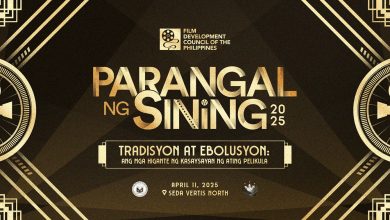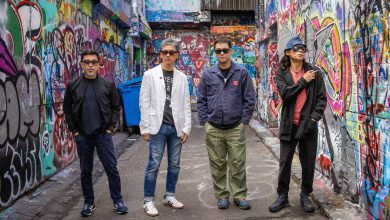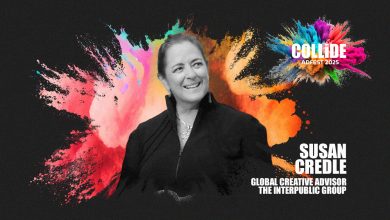SINGAPORE — On May 31, 2019 the annual Asia Pacific Stevie Awards commenced at the Intercontinental Hotel in Singapore, honoring the best of APAC innovations in business and commerce. 2002 was the year Michael Gallagher, President and Founder of the Stevie Awards, recognized the need for an awards show solely dedicated to honoring the excellent and positive contributions of business organizations all around the world. Since its launch more than a decade ago, it has released a total of 7 programs under the Stevie Awards name, ranging from the American Business Awards, to the German Stevie Awards, the Stevie Awards for Women in Business to the Stevie Awards for Sales & Customer Service and more.
The adobo magazine team was able to sit down with Gallagher to discuss how this body of award shows have grown to the empire it is today, and how the Asia Pacific Stevies has evolved in a unique way, compared to the other Stevie Award programs.
Gallagher shares he got his first taste of what it’s like to organize an award show when he worked with the New York Festivals in the 1980s, something that he really enjoyed and wanted to go back to, he shared with us. It was this experience that really fueled the launch of the Stevie Awards 17 years ago, with the intent to create an Oscar-type of prestigious award dedicated solely to businesses, something he found lacking in the award programs that were currently active in the market at the time.
From there, he started the American Business Awards, which was the very first program of the Stevie Awards, and expanded it exponentially to cater to the rich diversity found across the business industry. Admittedly, Gallagher was very vocal about the difficulties of launching an award show for the first time:
“It’s difficult to do if you haven’t done it before. So I value the experience I had with the New York Festivals in the 1980s because you learn how to structure a competition, how to come up with a business model so it’s self-sustaining, how to organize the judging. Back in the 1980s we didn’t have websites, everything was done by paper and postal mail, it’s much easier now with digital communication. It allows us to communicate with nominees digitally, and potential nominees and judges, and also for them to submit their nominations online and manage their whole experience with us online.
It was somewhat easier for me, because I had that experience, but like any other venture it’s enormously difficult the first year where you have to basically create every system. Everything has to be created from scratch.”
The prestige that envelops the Stevie Awards as a whole now was not built overnight. He discussed what it took for it to really take off, stating that it normally takes at least 5-6 years before an awards program grows because “…you can’t associate prestige with an awards program just by spending money on advertising. The prestige comes from longevity, from the number of years you can put before the annual.”
This year, hundreds of awards were given out to excelling business organizations from all across the Asia Pacific, and what makes the APAC Stevie Awards unique, as Gallagher put it, is the diversity of entrants that are nominated every year. In the USA, he shared that most organizations that enter are from hi-tech and business software companies while in Asia Pacific, a range of industries participate such as retail, real estate, hospitality and leisure, and more. Although these industries also enter in the USA, it’s not nearly as many as they get from the big software companies, he elaborated.
That evening, 104 awards were given to 27 organizations from the Philippines. When we asked for his thoughts on this, he shared, “One of the nice things I like about Filipino entries is they’re not from the industries that we typically get nominations from. They’re in a lot of different [industries]: telecom, real estate, retail, broadcasting, and a number of industries that we don’t typically get nearly as many entries from. “
Lastly, Gallagher emphasized the role of the Stevie Awards to the growing number of business organizations it honors year on year, wrapping up our conversation with him with some food for thought on growing businesses and empowering organizations:
“Words are tools. And like any tool, it’s only worth what you build with it. So if adobo magazine were a hammer, I could put it in my tool box and leave it there, or I could take it and build a house with it. So a tool is only worth what you do with it, and we tell our winners that ‘You got this trophy, it’s not magical, it’s not going to make you famous by itself. If you take it back in the office and put it on a shelf, and let it collect dust, it’s not really going to do anything for you. But if you use the fact that you’ve won a Stevie Award as a tool to build you brand, or to further your relationship with your employees, your clients, then its tool is worth something.’
“We’re in the business of brandishing tools that organizations can use to accomplish any number of things like build a brand; they’re great partner-client tools, if a manager nominates his or her team for an award, here she is basically saying to the team: you’ve done a good job, I think you’re worthy of being nominated for an award and possibly win an award.
“There’s a lot of benefits associated with participating, with winning, but again it’s a tool that’s only worth what you do with it.”










